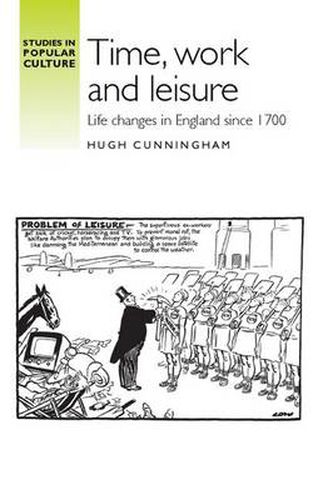Readings Newsletter
Become a Readings Member to make your shopping experience even easier.
Sign in or sign up for free!
You’re not far away from qualifying for FREE standard shipping within Australia
You’ve qualified for FREE standard shipping within Australia
The cart is loading…






This book traces the history of the relationship between work and leisure, from the ‘leisure preference’ of male workers in the eighteenth century, through the increase in working hours in the later eighteenth and early nineteenth centuries, to their progressive decline from 1830 to 1970. It examines how trade union action was critical in achieving the decline; how class structured the experience of leisure; how male identity was shaped by both work and leisure; how, in a society that placed high value on work, a ‘leisured class’ was nevertheless at the apex of political and social power - until it became thought of as ‘the idle rich’. Coinciding with the decline in working hours, two further tranches of time were marked out as properly without work: childhood and retirement. Accessible, wide-ranging and occasionally polemical, this book provides the first history of how we have imagined and used time.
$9.00 standard shipping within Australia
FREE standard shipping within Australia for orders over $100.00
Express & International shipping calculated at checkout
This book traces the history of the relationship between work and leisure, from the ‘leisure preference’ of male workers in the eighteenth century, through the increase in working hours in the later eighteenth and early nineteenth centuries, to their progressive decline from 1830 to 1970. It examines how trade union action was critical in achieving the decline; how class structured the experience of leisure; how male identity was shaped by both work and leisure; how, in a society that placed high value on work, a ‘leisured class’ was nevertheless at the apex of political and social power - until it became thought of as ‘the idle rich’. Coinciding with the decline in working hours, two further tranches of time were marked out as properly without work: childhood and retirement. Accessible, wide-ranging and occasionally polemical, this book provides the first history of how we have imagined and used time.